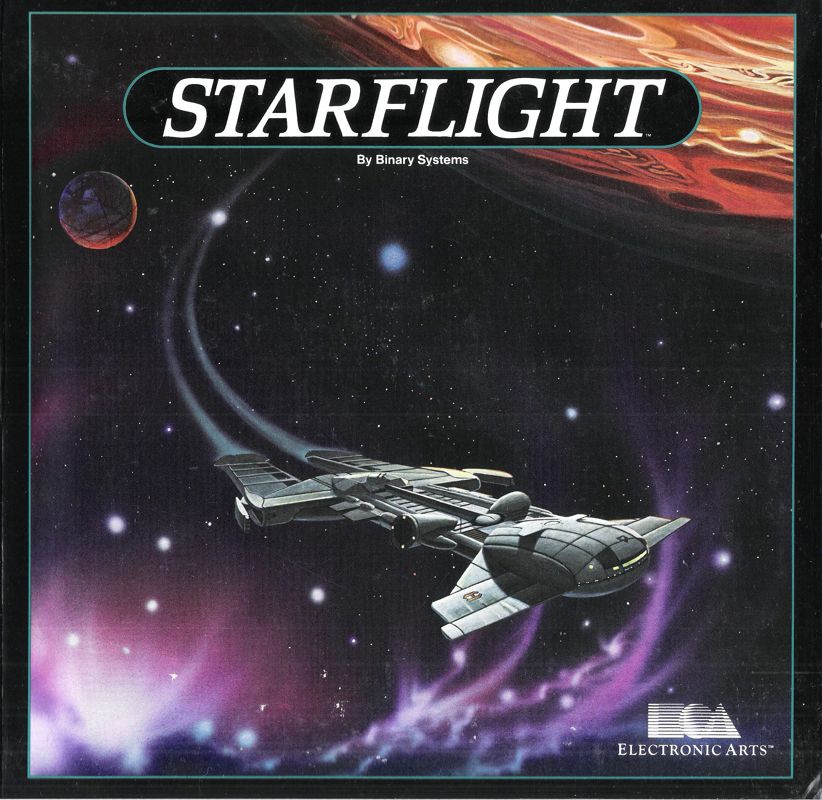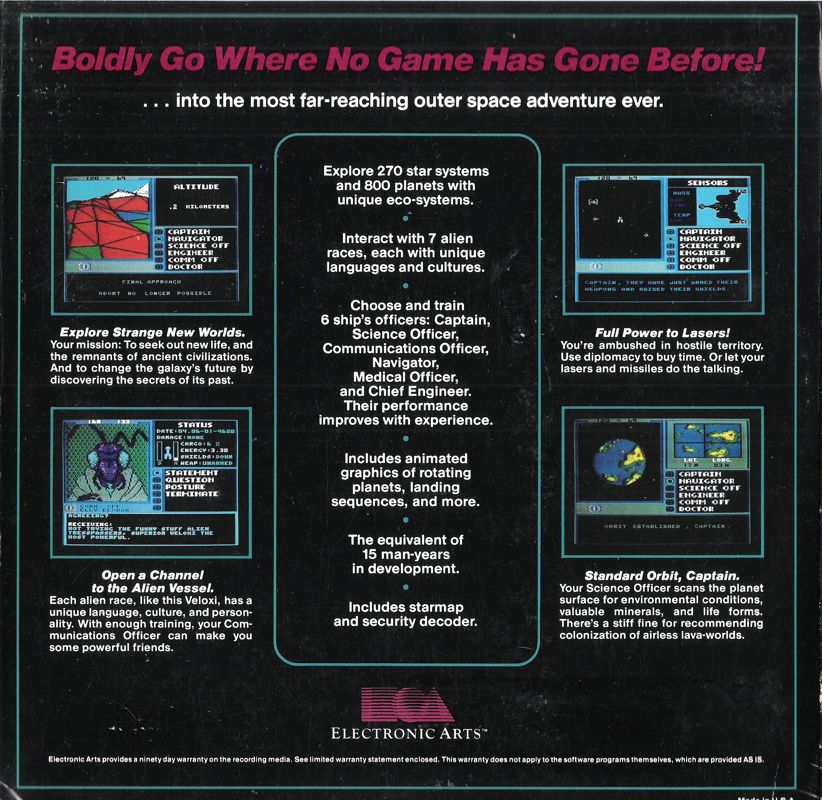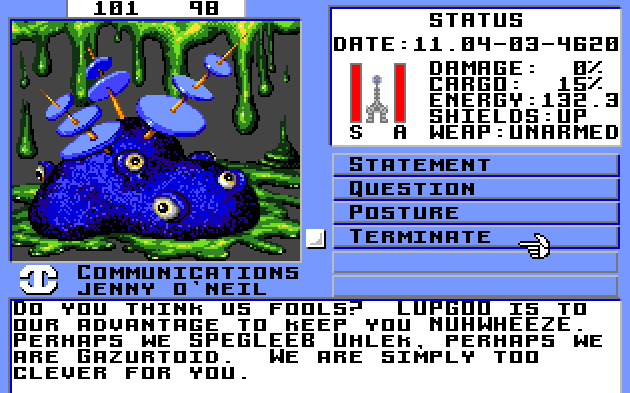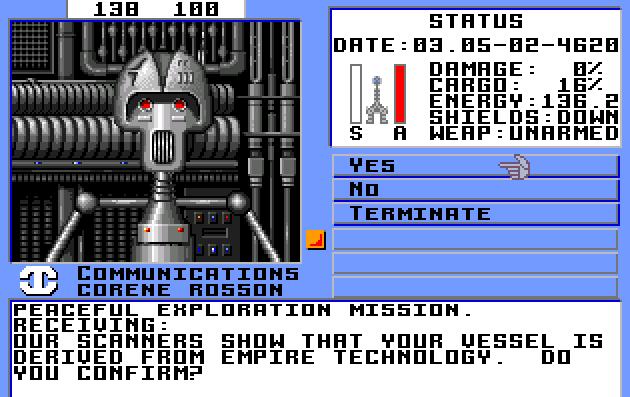A long time ago, a great empire comprised of Humans, Velox, Thrynn and Elowan ruled the stars. The Empire’s currency was an energy source called Endurium. But something happened and this empire is no more. Furthermore, the small colony world named Arth has forgotten this heritage and technology. A thousand years have since passed and the people of Arth have rediscovered archaeological evidence of their empire. Using these discoveries, they create spaceships and form the Interstel corporation to govern the fleet. It’s time to take the first steps back into space… but could it be the same enemy that destroyed the Empire still exists?
Starflight is a space exploration game with role-playing elements. The game is completely non-linear, allowing the player to venture to any star system and explore any of the vast amount of available planets. The main plot is advanced by following cryptic clues either received as transmissions at the initial spaceport, or obtained as a result of successful communication with various alien races populating the universe.
The player must first form a crew, assign their positions and customize the spaceship before blasting off from spacedock. Besides the captain of the ship, a science officer, a navigator, an engineer, a communicator, and a doctor have to be assigned to the ship. The player can choose between Humans, Velox, Thrynn, Elowan, and Android races when creating the characters. Each profession usually has a racial counterpart with the highest proficiency in it. Except Androids, members of every race can be trained in their skills by spending the game’s currency. In the starting location the player can also acquire better weapons, armor, and shields for the ship, as well as outfit it with cargo pods. Terrain vehicle can be customized as well.
Once out into space, the standard interface allows access to different crew members and navigation. The entire galaxy is unknown and it’s up to the player to travel to distant planets to explore and land on them. Planets may be inhospitable, with harsh weather conditions and various terrain types. Using a top-down interface, a planetary lander will venture out with the task of finding minerals and biological data to transport back to Starport. These resources can be sold for MU, the game’s currency.
Different alien races control the galaxy and it will be up to the player to approach them diplomatically or face them in combat. Depending on the communicator’s skill, the player may conduct successful conversations by assuming different postures, requesting information, or answering questions posed by the aliens. Each race has a different attitude and requires different approaches to peacefully end the negotiations. If all else fails, or if the player so wishes, the player-controlled ship may engage the aliens in combat, which is presented as overhead arcade action sequences. Successful exploration of the galaxy and alien cultures will yield clues and new leads as to the fate of the Empire.
The Amiga version adds an auto-mining command. The Genesis version has updated graphics and sound, and is different in several aspects: locations of minerals and artifacts are different; there are new weapons for the ship and upgrades for the terrain vehicle; landing on planets is no longer automatic and must be controlled manually to avoid crashing; terrain vehicle exploration is more realistic, with visible weather conditions and various terrain types slowing down the vehicle.
Cover Art:
Screenshots:





